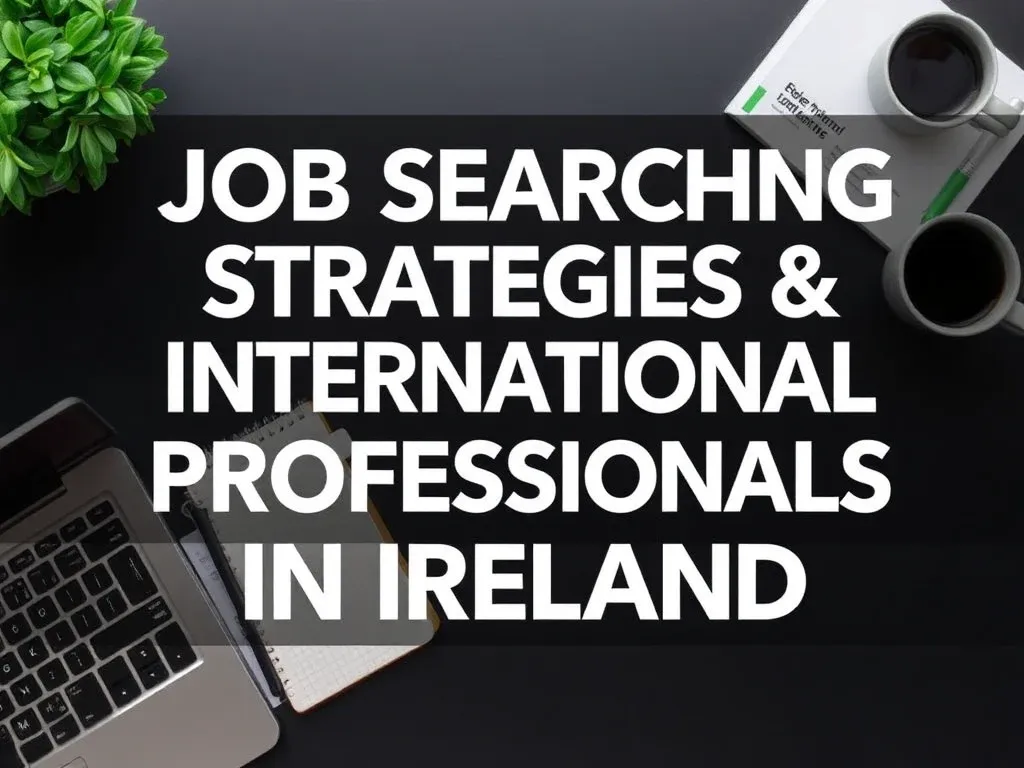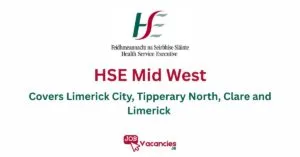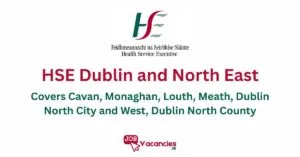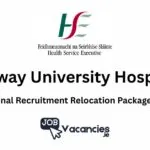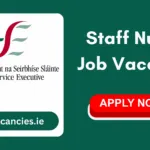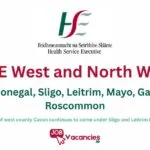Table of Contents
- Table of Contents
- Introduction
- Understanding the Irish Job Market
- Key Economic Sectors
- Regional Differences
- Skills in Demand
- Legal Requirements and Work Permits
- EU/EEA and Swiss Nationals
- Non-EU/EEA Nationals
- Critical Skills Employment Permit
- General Employment Permit
- Other Relevant Permits and Visas
- Recognition of International Qualifications
- Academic Qualifications
- Professional Qualifications
- Vocational Qualifications
- Adapting Your CV and Cover Letter
- CV Format and Content
- Cover Letter Approach
- Addressing International Experience
- Effective Job Search Channels
- Online Job Boards
- Recruitment Agencies
- Company Websites
- Social Media and Professional Networks
- Networking Strategies for Newcomers
- Professional Associations and Industry Groups
- Networking Events and Meetups
- Informational Interviews
- Online Networking
- Expatriate Communities
- Interview Preparation for International Candidates
- Understanding Irish Interview Styles
- Preparing for Common Questions
- Cultural Considerations
- Addressing Potential Concerns
- Cultural Adaptation in the Workplace
- Irish Workplace Culture
- Communication Differences
- Building Relationships
- Adapting Your Work Style
- Language Skills and Communication
- English Language Proficiency
- Irish English Particularities
- Improving Your Language Skills
- Communication in the Workplace
- Support Resources and Organizations
- Government Resources
- Non-Governmental Organizations
- Education and Training
- Community Support
- Success Stories and Case Studies
- Common Challenges and How to Overcome Them
- Work Permit Hurdles
- Recognition of Experience
- Cultural Integration
- Practical Challenges
- Conclusion
- Related Posts
Job Searching Strategies for International Professionals in Ireland
Reading time: 12 minutes
Ireland’s growing economy and vibrant international business scene make it an attractive destination for professionals from around the world. However, navigating the Irish job market as an international candidate presents unique challenges and opportunities. This comprehensive guide provides practical strategies, insights, and resources to help international professionals successfully find employment in Ireland.
Introduction
Ireland has emerged as a global hub for international business, technology, pharmaceuticals, and financial services, attracting professionals from diverse backgrounds and nationalities. With its English-speaking environment, EU membership, and growing economy, Ireland offers numerous opportunities for international talent.
However, finding employment in a new country comes with its unique set of challenges. From understanding visa requirements and having your qualifications recognized to adapting to local workplace culture and building a professional network from scratch – the journey requires strategic planning and persistence.
This guide aims to provide international professionals with practical insights and actionable strategies to navigate the Irish job market successfully. Whether you’re planning your move to Ireland, have recently arrived, or have been here for a while but are struggling to find suitable employment, the following sections will help you optimize your job search and increase your chances of securing a rewarding position.
Pro Tip:
Start your job search process well before relocating to Ireland if possible. Many employers are willing to conduct initial interviews virtually, and having a job offer in hand can significantly simplify the visa and work permit process.
Understanding the Irish Job Market
Before diving into your job search, it’s essential to understand the structure and dynamics of the Irish job market:
Key Economic Sectors
Ireland’s economy features several thriving sectors that frequently hire international talent:
- Technology: Ireland hosts European headquarters for companies like Google, Facebook, Apple, Microsoft, and LinkedIn
- Pharmaceuticals and Medical Devices: Major employers include Pfizer, Johnson & Johnson, Medtronic, and Boston Scientific
- Financial Services: Dublin’s International Financial Services Centre (IFSC) houses numerous global financial institutions
- Shared Services and Business Process Outsourcing: Many multinationals have established operational centers in Ireland
- Healthcare: Both public and private healthcare providers regularly recruit international healthcare professionals
- Hospitality and Tourism: A significant sector with seasonal variations in employment opportunities
Regional Differences
While Dublin offers the highest concentration of job opportunities, other cities and regions present distinct advantages:
- Dublin: The capital hosts the majority of multinational corporations and offers the widest range of opportunities, but also has the highest cost of living
- Cork: Strong in pharmaceuticals, technology, and manufacturing with a lower cost of living than Dublin
- Galway: Known for medical device companies and a growing technology sector
- Limerick: Emerging technology hub with companies like Dell and Johnson & Johnson
- Waterford: Opportunities in pharmaceutical manufacturing and shared services
Skills in Demand
Ireland currently has skills shortages in several areas, which can present opportunities for international professionals:
- IT and Software Development: Particularly in areas like cybersecurity, data analytics, AI, and cloud computing
- Engineering: Especially in biomedical, electrical, and mechanical fields
- Healthcare: Doctors, nurses, and allied health professionals
- Financial Services: Risk management, compliance, and fintech specialists
- Multilingual Professionals: Particularly those combining technical skills with European language proficiency
- Construction: Skilled trades and project management
Current Market Trends
Several trends are shaping the Irish job market for international professionals:
- Remote and hybrid work options have expanded, making it possible to work for Irish companies while based elsewhere initially
- Skills-based hiring is increasingly prioritized over traditional qualifications
- Diversity and inclusion initiatives are growing, with many companies actively seeking to build international teams
- Contract and temporary roles can serve as entry points to the Irish job market
- Sustainability and green skills are emerging areas of opportunity
Legal Requirements and Work Permits
Understanding Ireland’s immigration system is crucial for international job seekers. Your nationality determines what permissions you need to work legally in Ireland:
EU/EEA and Swiss Nationals
If you’re a citizen of an EU/EEA country or Switzerland:
- You have the right to work in Ireland without a work permit
- You should register your residence if staying longer than three months
- You’ll need a Personal Public Service (PPS) number for employment and taxation purposes
Non-EU/EEA Nationals
If you’re from outside the EU/EEA:
- You generally need a work permit to be employed in Ireland
- The most common types are the Critical Skills Employment Permit and the General Employment Permit
- Your prospective employer usually needs to apply for the permit on your behalf
- Some roles and nationalities may be ineligible for certain permit types
Critical Skills Employment Permit
This is the most advantageous permit for skilled professionals:
- Designed for occupations with skills shortages in Ireland
- Faster path to long-term residency
- Immediate family reunification possible
- After two years, you can work without a permit
- Typically requires a job offer with a minimum annual salary of €32,000 or €64,000, depending on the occupation
General Employment Permit
This is available for a wider range of occupations:
- Available for most occupations, with some exceptions
- Requires a job offer with a minimum annual salary of €30,000 in most cases
- Labor market needs test usually required (employer must advertise the position locally first)
- Initially granted for two years, renewable for three more
- Family reunification possible after 12 months
Pro Tip:
The Critical Skills Occupation List is regularly updated. Check the Department of Enterprise, Trade and Employment website for the most current list of eligible occupations. Having a skill on this list significantly improves your chances of securing a work permit.
Other Relevant Permits and Visas
Depending on your situation, these options might be relevant:
- Stamp 4: Allows unrestricted access to the labor market for certain categories of residents
- Dependent/Partner/Spouse Employment Permit: For family members of certain work permit holders
- Graduate Scheme: Allows international graduates from Irish institutions to work for 1-2 years after graduation
- Working Holiday Authorization: Available for young people from certain countries
- Researcher Hosting Agreements: For scientific researchers
Recognition of International Qualifications
Having your international qualifications properly recognized is crucial for your job search in Ireland:
Academic Qualifications
For academic degrees and diplomas:
- Quality and Qualifications Ireland (QQI) operates NARIC Ireland, which provides advice on foreign qualifications
- You can request a comparability statement that shows how your qualification compares to an Irish qualification
- This service is free and can be accessed through the QQI website
- The statement can be included with your job applications to help employers understand your qualifications
Professional Qualifications
For regulated professions (such as healthcare, teaching, law, accounting, etc.):
- You’ll need to contact the relevant regulatory body for your profession
- Each profession has its own recognition process and requirements
- This process can take time, so start it well before your job search if possible
- Some examples include the Medical Council (doctors), Nursing and Midwifery Board (nurses), and Teaching Council (teachers)
Vocational Qualifications
For trade and vocational qualifications:
- SOLAS (formerly FÁS) handles recognition for many craft and technical qualifications
- Industry-specific certifications may need validation by relevant professional bodies
- Some employers may require you to complete additional training or assessment
Important Note:
Start the qualification recognition process as early as possible, as it can take several weeks or even months for some professions. For regulated professions like medicine, nursing, or teaching, you cannot legally practice without proper recognition and registration.
Adapting Your CV and Cover Letter
Irish employers often have specific expectations for application documents. Adapting your CV (resume) and cover letter to Irish standards can significantly improve your chances:
CV Format and Content
Key considerations for your Irish CV:
- Length: Typically 2 pages for most positions (1 page for entry-level, up to 3 for senior roles)
- Personal details: Include name, contact information, and work permit status (if applicable)
- Photo: Generally not required or expected (unlike some European countries)
- Personal statement: A brief professional profile highlighting key skills and experience
- Education: Include any qualification comparability statements from NARIC Ireland
- Work experience: Focus on achievements rather than just responsibilities
- Skills: Highlight relevant technical and soft skills, including language proficiency
- References: Usually stated as “Available upon request” rather than listed directly
Cover Letter Approach
Effective cover letters for the Irish market:
- Length: One page maximum, 3-4 concise paragraphs
- Tone: Professional but conversational, avoiding overly formal language
- Content: Address specific job requirements and how your experience matches them
- Cultural fit: Demonstrate knowledge of the company and why you’re interested in working there
- International perspective: Highlight the unique value your international experience brings
- Work authorization: Clearly state your current work permit status or eligibility
Pro Tip:
Tailor each application to the specific job and company. Research the organization thoroughly and reference specific projects, values, or initiatives that align with your experience and interests. Generic applications are quickly identified and often discarded.
Addressing International Experience
Effectively presenting your international background:
- Explain equivalent roles or responsibilities in terms Irish employers will understand
- Quantify achievements with specific metrics and outcomes
- Highlight transferable skills that apply across different markets
- Emphasize multicultural experience as an asset for diverse workplaces
- Address potential concerns proactively (e.g., language skills, cultural adaptation)
Effective Job Search Channels
Knowing where and how to look for jobs is crucial for international job seekers in Ireland:
Online Job Boards
The most popular job boards in Ireland include:
- Indeed.ie: The largest general job site with thousands of listings
- IrishJobs.ie: One of the oldest and most established job sites
- Jobs.ie: Another major general job board
- LinkedIn: Particularly useful for professional and multinational roles
- GradIreland: Focused on graduate opportunities
- PublicJobs.ie: For public sector positions
- TechJobs.ie: Specialized in technology roles
Recruitment Agencies
Working with recruiters can be particularly valuable for international candidates:
- Many agencies specialize in specific sectors or roles
- They can provide market insights and salary guidance
- Some focus on placing international candidates
- They often have relationships with employers open to sponsoring work permits
- Notable agencies include Morgan McKinley, Sigmar, CPL, Hays, and Robert Walters
Company Websites
Direct applications can be effective, especially for multinational companies:
- Many large employers list openings exclusively on their own career pages
- Multinationals often have specific international hiring programs
- Create job alerts on company websites that interest you
- Research companies with a history of sponsoring work permits
Social Media and Professional Networks
Leverage online networking for your job search:
- LinkedIn: Essential for professional networking in Ireland
- Twitter: Follow companies, recruiters, and industry hashtags
- Facebook Groups: Join groups for your profession or for expatriates in Ireland
- Slack Communities: Many industries have Irish-focused professional communities
Job Search Strategy for International Candidates
Consider this multi-channel approach:
- Start with research to identify companies in your field that hire internationally
- Create tailored profiles on 2-3 major job boards
- Register with 2-3 recruitment agencies specializing in your sector
- Set up job alerts on company websites and LinkedIn
- Dedicate time to networking and building connections
- Follow up consistently on applications and leads
Networking Strategies for Newcomers
Building a professional network is particularly important for international job seekers who may not have established connections in Ireland:
Professional Associations and Industry Groups
Joining relevant organizations can provide valuable connections:
- Most professions have dedicated associations that welcome international members
- These groups often host events, webinars, and networking opportunities
- Membership demonstrates commitment to your profession in Ireland
- Many offer reduced rates for new members or those in career transition
Networking Events and Meetups
In-person and virtual events offer opportunities to make connections:
- Industry conferences and seminars
- Meetup.com groups related to your profession
- Chamber of Commerce events
- Expatriate community gatherings
- University alumni events
- Hackathons and innovation challenges (particularly for tech roles)
Informational Interviews
These can be invaluable for understanding the local market:
- Reach out to professionals in your target field for a brief conversation
- Ask about their career path, industry insights, and advice for newcomers
- Focus on learning rather than directly asking for job opportunities
- Always follow up with a thank-you note and maintain the connection
Pro Tip:
When attending networking events, prepare a concise “elevator pitch” that explains your background, skills, and what you’re looking for in Ireland. Practice delivering it naturally and be ready to adapt it to different audiences.
Online Networking
Strategic use of digital platforms can expand your reach:
- Optimize your LinkedIn profile with keywords relevant to your target roles
- Join and actively participate in LinkedIn groups related to your industry in Ireland
- Connect with recruiters specializing in your field
- Follow and engage with content from target companies
- Share relevant professional insights to build your personal brand
Expatriate Communities
Connect with others who have made a similar transition:
- Join nationality-based groups and associations
- Participate in expatriate forums like InterNations or Expat.com
- Attend cultural events and social gatherings
- These connections can provide both professional and personal support
Interview Preparation for International Candidates
Interviews in Ireland may differ from what you’re accustomed to in your home country. Here’s how to prepare effectively:
Understanding Irish Interview Styles
Common interview approaches in Ireland include:
- Competency-based interviews: Focus on specific examples from your experience
- Panel interviews: Multiple interviewers, common in public sector and larger organizations
- Technical assessments: Particularly for IT, engineering, and specialized roles
- Behavioral interviews: Questions about how you’ve handled situations in the past
- Case studies or presentations: Common for management and consultant roles
Preparing for Common Questions
Be ready to address these topics that often arise for international candidates:
- Your reasons for wanting to work specifically in Ireland
- How your international experience translates to the Irish context
- Your understanding of the local industry or market
- Your work permit status and availability
- Your long-term plans (employers may be concerned about retention)
- How you adapt to new environments and cultures
Cultural Considerations
Understanding Irish business culture can help you make a positive impression:
- Irish communication tends to be friendly but somewhat indirect
- Modesty is valued over excessive self-promotion
- Humor is often used, even in professional settings
- Punctuality is expected but meetings may not always start exactly on time
- Building rapport is important before getting down to business
Important Note:
For virtual interviews, test your technology in advance, ensure you have a professional background and good lighting, and be prepared for potential technical issues. Have a phone number ready as a backup if video conferencing fails.
Addressing Potential Concerns
Proactively address issues that might worry employers:
- Language proficiency: Demonstrate clear communication throughout the interview
- Cultural fit: Show awareness of Irish workplace norms
- Commitment: Explain your motivation for working in Ireland long-term
- Local knowledge: Demonstrate understanding of the Irish market and industry
- Work authorization: Be transparent about your current status and any steps needed
Cultural Adaptation in the Workplace
Understanding and adapting to Irish workplace culture can significantly impact your success:
Irish Workplace Culture
Key characteristics of Irish work environments:
- Relationship-focused: Building personal connections is important
- Relatively flat hierarchies: Less formal than some European or Asian countries
- Emphasis on teamwork: Collaborative approaches are valued
- Work-life balance: Generally respected, though varies by industry
- Communication style: Often indirect, with humor and storytelling
- Flexibility: Adaptability and problem-solving are highly valued
Communication Differences
Understanding Irish communication patterns:
- Irish people often use understatement rather than direct criticism
- “That’s interesting” might actually mean “I disagree”
- Small talk before business matters is expected and valued
- Humor is frequently used, even in serious workplace situations
- Disagreement is often expressed in subtle ways
Building Relationships
Strategies for connecting with Irish colleagues:
- Accept invitations to after-work social events when possible
- Show interest in local sports, especially GAA, rugby, or soccer
- Be open to sharing aspects of your own culture
- Participate in team activities and celebrations
- Be willing to engage in casual conversation before meetings
Pro Tip:
In Irish workplaces, the ability to “have the craic” (enjoy social interaction and humor) is often valued. While maintaining professionalism, showing that you can participate in light-hearted conversation and don’t take yourself too seriously can help you integrate more quickly.
Adapting Your Work Style
Adjustments that may help you succeed:
- Balance self-promotion with modesty in presentations and meetings
- Be prepared for meetings that may not always follow a strict agenda
- Understand that decisions may emerge through consensus rather than directive leadership
- Recognize that feedback may be delivered more subtly than you’re used to
- Appreciate the value placed on practical problem-solving over theoretical approaches
Language Skills and Communication
While English is the primary business language in Ireland, there are nuances to consider:
English Language Proficiency
Requirements and considerations:
- Most professional roles require strong English communication skills
- Some positions may require formal English language certification (IELTS, TOEFL, etc.)
- Different industries have varying expectations for language proficiency
- Customer-facing roles typically demand higher language skills
Irish English Particularities
Understanding local language usage:
- Irish English has unique vocabulary, expressions, and speech patterns
- Pronunciation and accent can vary significantly across different regions
- Certain terms have different meanings than in other English-speaking countries
- Indirect communication is common (“I might” often means “I will”)
Improving Your Language Skills
Resources for enhancing your English:
- Language exchange groups and conversation clubs
- Business English courses at local colleges or online
- Irish media (newspapers, radio, television) to understand local usage
- Workplace-specific language training
- Apps and online resources focused on business communication
Value of Additional Languages
While English is essential, other language skills can be advantageous:
- Many multinational companies value European language skills (French, German, Spanish, Italian, etc.)
- Customer service centers often seek multilingual staff for international markets
- Sales roles targeting specific markets may require relevant language abilities
- Tech companies frequently need localization specialists
- Financial services firms value language skills for international client relations
Communication in the Workplace
Strategies for effective communication:
- Don’t hesitate to ask for clarification if you don’t understand something
- Be aware that Irish colleagues may not directly point out if they don’t understand you
- Pay attention to non-verbal cues and context
- Adjust your pace of speech if necessary
- Be conscious of industry-specific terminology and jargon
Support Resources and Organizations
Various organizations and resources can assist international job seekers in Ireland:
Government Resources
Official support services:
- Department of Enterprise, Trade and Employment: Information on work permits and employment rights
- Department of Justice: Immigration and residence information
- Citizens Information: Comprehensive resource on all aspects of living and working in Ireland
- Intreo: Public employment and support service
- QQI (Quality and Qualifications Ireland): For qualification recognition
Non-Governmental Organizations
Additional support services:
- New Communities Partnership: Support for migrants from non-EU countries
- Migrant Rights Centre Ireland: Advocacy and support for migrant workers
- Crosscare Migrant Project: Information and advocacy service
- Business in the Community Ireland: Employment programs for migrants
- EPIC (Employment for People from Immigrant Communities): Job seeking support
Education and Training
Resources for skills development:
- Skillnet Ireland: Industry-led training networks
- Education and Training Boards (ETBs): Local education providers
- Springboard+: Free or subsidized higher education courses
- FIT (Fast Track to IT): Technology training programs
- Local Enterprise Offices: Business skills training
Pro Tip:
Many libraries in Ireland offer free access to online courses, language learning resources, and career development materials. They also frequently host networking events and workshops that can be valuable for job seekers.
Community Support
Local and cultural connections:
- Cultural associations and embassy services
- Religious communities and places of worship
- Volunteer organizations (volunteering can build local experience and networks)
- Sports clubs and recreational groups
- Local community development organizations
Success Stories and Case Studies
Learning from others who have successfully navigated the Irish job market can provide valuable insights:
Case Study: Tech Professional from Brazil
Background: Maria, a software developer from São Paulo with 5 years of experience, wanted to work in Ireland’s tech sector.
Approach:
- Researched companies with Brazilian operations or connections
- Built a LinkedIn profile highlighting her experience with international clients
- Joined online communities for Brazilian professionals in Ireland
- Connected with recruiters specializing in tech roles
Outcome: Secured a position with a multinational tech company that sponsored her Critical Skills Employment Permit. The company valued her Portuguese language skills for their Brazilian market expansion.
Key Lesson: Leveraging unique language skills and targeting companies with connections to your home country can create opportunities.
Case Study: Healthcare Professional from India
Background: Raj, a nurse with 8 years of experience in India, wanted to continue his career in Ireland.
Approach:
- Started the registration process with the Nursing and Midwifery Board of Ireland while still in India
- Completed required adaptation period in an Irish hospital
- Joined professional nursing associations
- Networked with other Indian healthcare professionals in Ireland
Outcome: After completing his adaptation period, secured a permanent position in a public hospital. Later specialized in critical care nursing.
Key Lesson: Starting the professional recognition process early and being willing to complete additional training or adaptation periods can lead to successful career continuation.
Case Study: Finance Professional from France
Background: Sophie, a financial analyst from Paris, relocated to Ireland when her partner got a job in Dublin.
Approach:
- Leveraged her EU citizenship for unrestricted work access
- Highlighted her multilingual skills (French, English, German)
- Targeted financial services companies with French clients
- Attended networking events hosted by the France Ireland Chamber of Commerce
Outcome: Found a position with an asset management firm that needed French-speaking professionals to serve clients in France and French-speaking Switzerland.
Key Lesson: European language skills are highly valued in Ireland’s international business environment, particularly in financial services, customer support, and sales roles.
Common Challenges and How to Overcome Them
International job seekers in Ireland often face specific challenges. Here’s how to address them:
Work Permit Hurdles
Navigating immigration requirements:
- Challenge: Finding employers willing to sponsor work permits
- Solution: Focus on skills shortage areas and companies with a history of international hiring
- Challenge: Meeting minimum salary thresholds for permits
- Solution: Develop specialized skills that command higher salaries
- Challenge: Lengthy processing times
- Solution: Start the process early and ensure all documentation is complete and accurate
Recognition of Experience
Getting your international experience valued:
- Challenge: Employers unfamiliar with foreign companies or qualifications
- Solution: Provide context and equivalencies in your CV and interviews
- Challenge: Different industry standards or practices
- Solution: Highlight transferable skills and adaptability
- Challenge: Lack of local references
- Solution: Seek endorsements from international colleagues with Irish connections
Cultural Integration
Adapting to Irish workplace norms:
- Challenge: Different communication styles
- Solution: Observe carefully and adjust gradually; ask for feedback
- Challenge: Building trust and relationships
- Solution: Participate in social activities; show interest in local culture
- Challenge: Understanding unwritten rules
- Solution: Find a mentor or buddy who can explain cultural nuances
Important Note:
Persistence is key in the international job search. Many successful international professionals in Ireland faced multiple rejections before finding the right opportunity. Keep refining your approach based on feedback and don’t get discouraged by initial setbacks.
Practical Challenges
Addressing logistical issues:
- Challenge: Conducting a job search from abroad
- Solution: Leverage virtual interviews and networking; consider a short exploratory trip if possible
- Challenge: Establishing banking and credit history
- Solution: Research banks with expatriate-friendly services; bring financial references
- Challenge: Finding accommodation without employment
- Solution: Consider temporary accommodation initially; use expatriate housing resources
Conclusion
Finding employment in Ireland as an international professional presents both challenges and opportunities. While navigating work permits, qualification recognition, and cultural differences requires effort, Ireland’s growing economy and skills needs create genuine opportunities for international talent.
Success in the Irish job market typically comes to those who:
- Research thoroughly and understand the specific requirements of their profession
- Prepare strategically for the job search process
- Build meaningful professional connections
- Demonstrate adaptability and cultural awareness
- Highlight the unique value their international perspective brings
- Persist through challenges with resilience and flexibility
Ireland’s increasingly diverse workforce is one of its greatest strengths. International professionals contribute valuable skills, perspectives, and connections that enhance Irish businesses and organizations. By following the strategies outlined in this guide and leveraging available resources, you can position yourself for success in your Irish career journey.
Final Tip:
Remember that your international background is an asset, not a limitation. In today’s globalized economy, employers increasingly value diverse perspectives and cross-cultural experience. Focus on how your unique background can benefit potential employers and contribute to Ireland’s dynamic, international business environment.
